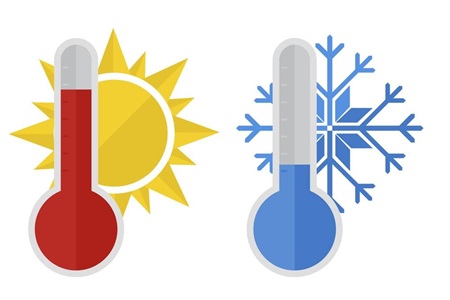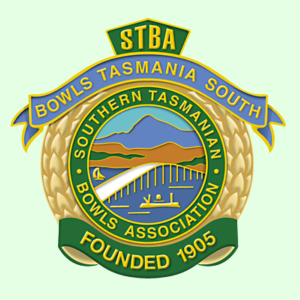
BTS Extreme Weather and Natural Disasters Policy
Printable version: BTS Extreme Weather and Natural Disasters Policy (PDF)
Contents
- Principles
- Measurements
- Playing bowls and extreme weather
- Managing extreme heat conditions
- Self-management in hot conditions
- Self-management and sun safety
- Self-management and dehydration
- About heat illness
- Guidelines for clubs
- Useful resources
RELATED POLICIES:
APPLICABLE FORMS:
RESPONSIBLE OFFICER: BTS Secretary AUTHORITY: BTS Board APPROVED: June 2023 REVIEW DATE: June 2025 |
Constitutional authority
41. BY-LAWS, CONDITIONS OF PLAY AND POLICIES
The Board may make, repeal, amend or alter such By-Laws and Policies as considered necessary for the proper conduct of the operations of the Association. Such By-Laws and Policies must be consistent with the Objects contained in Rule 4 of these rules [the constitution].
Back to top
1. Principles
1.1 Bowls Tasmania South (BTS) wishes to ensure its members participate in the game of lawn bowls in the safest environment possible and with minimum risk of harm.
1.2 The safety of players and officials will remain the paramount consideration when decisions are made.
1.3 The decision to suspend or discontinue play because of adverse weather conditions rests with the umpire of the day, or in the absence of an umpire, with the Side Captains in agreement.
2. Measurements
2.1 Temperature. The temperature at a club is to be taken from the Weatherzone website (www.weatherzone.com.au) or the equivalent smartphone app.
2.2 Rain. The likely movement of rain towards a club is to be assessed using the Rain Radar function of the Bureau of Meteorology website (bom.gov.au/tas).
2.3 Sun safety. The daily local sun protection times (to determine high UV levels) is to be determined using the Sun Smart website (sunsmart.com.au).
2.4 Bush fires. Information contained on the Bureau of Meteorology website, or local radio/SMS emergency announcements/advice, should be taken into consideration when assessing the likelihood of bushfires impacting on pennant play.
3. Playing bowls and extreme weather
3.1 Heat. When there is an expectation of high temperatures occurring during pennant play, Side Captains must make the health, wellbeing, and safety of their teammates their highest priority, with the result of the match being a secondary consideration. Early intervention by either the umpire or a Side Captain is strongly encouraged to minimise the effects of heat stress.
3.2 Wind. If the wind is strong enough to move the jack continually out of position and/or constantly disturb the placement of the mat, play should be suspended until the strength of the wind subsides.
3.3 Rain. If it is raining lightly at the scheduled commencement of play, or starts to rain during play, play will commence or continue unless the umpire, or Side Captains in agreement, decide that play should not commence or play should be suspended. Play will be abandoned if the umpire, or the Side Captains in agreement, determine that it is unsafe and potentially too dangerous to either start or recommence play, whichever is appropriate.
3.4 Flooding. When a venue is affected by flooding and no play is possible, the match will be abandoned, and points shared as per Conditions of Play. Where recovery from a flooding event may affect play at a bowls club for a considerable time all efforts will be made to transfer the club’s pennant fixtures to another venue until remediation of the club’s green(s) has been completed. When it is not possible to transfer a pennant match to an alternate venue the match will be declared a draw and the points shared.
3.4 Lightning. Lightning can strike without other typical storm characteristics (that is, thunder, rain, and wind) being present. When lightning is sighted play is to be immediately suspended and all players must immediately leave the green and move to a safe structure. The umpire, or the Side Captains in agreement, must decide that the lightning has abated before play can recommence. If play is abandoned the result of the match must be decided in accordance with BTS Conditions of Play.
3.5 Fire/Smoke. When bushfires are present in the surrounding area, and the club is affected by smoke, Side Captains will:
- watch for any adverse effects on players,
- monitor emergency services advice, and
- take all actions necessary to ensure the health and safety of all players.
The BTS Match Committee may act on emergency services advice and suspend pennant play in areas either affected by a bushfire event or under immediate threat from an advancing fire front.
3.6 When play has been interrupted or suspended, play should resume, as per Condition of Play 3.18, when/if it is deemed safe to return to the green.
4. Managing extreme heat conditions
4.1. Before the start of the play, the umpire and/or home Side Captain will check the expected temperature (and any other predicted adverse weather trends) for the duration of the game they are managing. An announcement to all players will be made to warn them of any expected extreme weather conditions as appropriate.
4.2 The following steps should be considered to minimise the risk of UV damage and/or heat illness when high temperatures have been forecast, or being experienced:
- Limit roll-up/practice.
- Start earlier or later in the day.
- Increase rest breaks and opportunities to seek shade and rehydrate.
- Rotate out of the sun more frequently than usual.
- Monitor players for signs of heat illness (see below for symptoms).
4.3 The following actions must be taken as temperatures reach specified limits:
- Play must be interrupted for drinks breaks every 20 minutes when the temperature reaches 30ºC.
- Play must be suspended when the temperature reaches 32ºC and may not recommence until the temperature eases back to 30ºC.
- Play must be abandoned when the temperature reaches 35ºC.
4.4 Umpires, or Side Captains in agreement, may interrupt, suspend, or abandon play before the limits stated in 4.3 above are reached if the wellbeing of players is in jeopardy.
4.5 If play is abandoned under these circumstances, the result of the match will be determined by applying Condition of Play 3.24.
5. Self-management in hot conditions
5.1 Participants are expected to consider their own health limitations before commencing play on a day of forecast extreme weather. Participants should guard against getting too hot and take measures to protect themselves from harm.
5.2 If a participant is exhibiting signs of heat illness whoever is nearest should take the following action:
- Remove the participant from the green.
- Lay the person down in a cool place.
- Raise legs and pelvis to improve blood pressure.
- Remove excess clothing.
- Cool by wetting skin liberally and vigorous fanning (evaporative cooling).
- Apply ice packs to groin, armpits and neck.
- Give cool water if conscious.
5.3 Persons suffering from heat exhaustion usually recover rapidly with this assistance. If they remain seriously ill, confused, are vomiting or show signs of altered consciousness call an ambulance immediately and seek medical help.
6. Self-management and sun safety
6.1. Participants should check the forecast UV levels for the time of the game and ensure sun protection is used if UV levels are forecast to exceed a rating of 3 (a regular event in Tasmania between August and April).
6.2 A combination of sun protection measures is recommended for UV levels above 3:
- Wear sun-protective clothing
- Use SPF30 (or higher) broad-spectrum, water- resistant sunscreen (applied 20 minutes before playing and reapplied every two hours).
- Wear wide-brimmed or bucket hats in preference to caps and visors (which do not provide adequate sun protection).
- Make use of shade when not actively playing to mitigate over-exposure to the sun.
7. Self-management and dehydration
7.1 Dehydration can make a participant more susceptible to fatigue and muscle cramps. Inadequate fluid replacement before, during and after the game will lead to excessive dehydration and contribute to heat exhaustion and heat stroke.
7.2 To avoid dehydration:
- Drink approximately 500 ml (2 glasses) in the 2 hours prior to the game.
- Drink 2-3 cups (500-700ml) of cool water or sports drink each hour during the game.
7.3 After the game, alcohol has a dehydrating effect on the body so participants should rehydrate with water before consuming alcohol.
8. About heat illness
8.1 Heat illness may occur with prolonged exposure to hot weather. The risk of heat illness is increased in hot and humid weather because:
- People may not be able to produce enough sweat for adequate cooling.
- High humidity may prevent adequate evaporation of sweat.
8.2 Heat illness in sport presents as heat exhaustion or heat stroke.
- Heat exhaustion. Participants who collapse after the game are likely to be suffering a post-exercise drop in blood pressure but some may have heat stroke.
- Heat stroke. Participants who show signs of altered mental function, loss of consciousness or collapse during the game are likely to be suffering heat stroke.
8.3 Participants should “listen to their bodies”. If they start to experience any of the following symptoms they should stop from playing and removed from the green immediately. Symptoms of heat illness may include:
- light headedness, dizziness
- nausea,
- obvious fatigue, loss of skill and coordination, or clumsiness/unsteadiness
- cessation of sweating
- confusion, aggressive or irrational behaviour, or altered consciousness
- collapse
- ashen grey pale skin
9. Guidelines for clubs
9.1 Emergency service volunteers. If members of a side are called away for duty with their emergency services organisation (for example, SES, Fire Brigade), the following shall occur if the effected side has no means of covering their absence:
- Prior to the start of play: The match will be declared a draw.
- During play: A result will be determined in accordance with BTS Conditions of Play.
9.2 Hot weather preparations. Clubs should provide players, officials and spectators with:
- Sufficient cold water to combat dehydration (see above).
- Sun-screen (stored below 30°C when not in use).
- Adequate shade.
9.3 Trained Side Captains. The Board of Management of each club is responsible for ensuring members appointed as Side Captains are familiar with this policy, other policies as they relate to the game, and relevant Conditions of Play.
9.4 Duty of Care. Side Captains are not to put the game ahead of the wellbeing of the player. They must ensure the care and safety of participants is paramount when considering actions to take.
BTS Board
June 2023
Useful resources
Weather reporting
- Bureau of Meteorology: http://www.bom.gov.au/tas/?ref=hdr
- WeatherZone: https://www.weatherzone.com.au/tas/lower-derwent
Sports Medicine Australia
- Lawn Bowls factsheet
https://sma.org.au/resources/sport-fact-sheets/lawn-bowls/ - Beat the Heat factsheet
https://sma.org.au/wp-content/uploads/2023/03/beat-the-heat-2011.pdf - Hot weather guidelines
https://sma.org.au/wp-content/uploads/2023/03/hot-weather-guidelines-web-download-doc-2007.pdf
